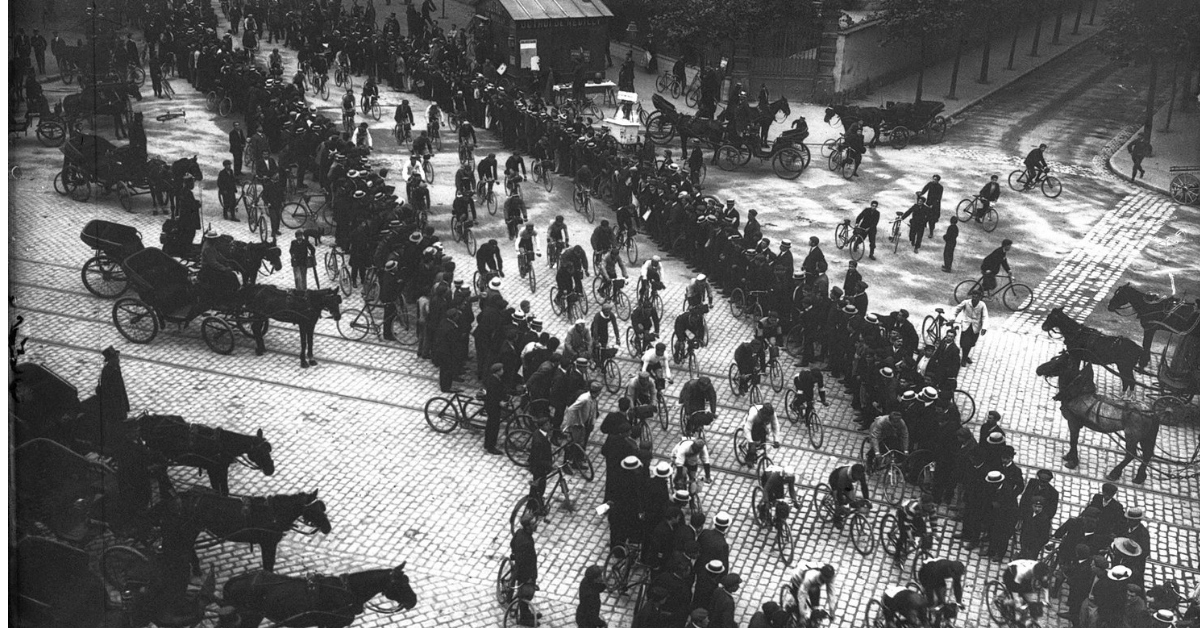I recently stumbled across an article discussing the 1914 Tour de France. Intrigued by the prospect of a wartime Tour de France, I started to delve further into the history of the Tour de France and its relationship with the two World Wars.
What I unearthed was an unbelievable succession of events including a cyclist being blackmailed to compete by the Gestapo and the director of French’s biggest national sports publication, L’Equipe, who once organised the Tour de France, handing over the keys to Paris’s Velodrome d’Hiver so that it could be used to hold 13,152 Jews.
The Tour de France & World War I: The Tour de France & Revenge
The Tour de France was founded upon a desire for revenge. Hurting from the loss of Alsace and part of Lorraine to Germany in the Franco-German War of 1870, France wanted to improve the fitness and endurance of its population, leading to the creation of the Tour de France in 1903. The 28th June 1914 marks the first day of the 12th edition of the Tour de France, the assassination of Franz Ferdinand, the Archduke of Austria, and the first day of World War I.
Incredibly, the Tour de France still ran to completion despite rapidly escalating political events. Six days after the Tour ended, France ordered military mobilisation. Two days after that, Germany invaded Belgium and declared War on France.
The winner of the 1907 and 1908 edition, Lucien Petit-Breton, and the winners of the 1909 and 1910 editions, François Faber and Octave Lapize, all lost their lives in “the War to End All Wars”, alongside numerous other competitors.
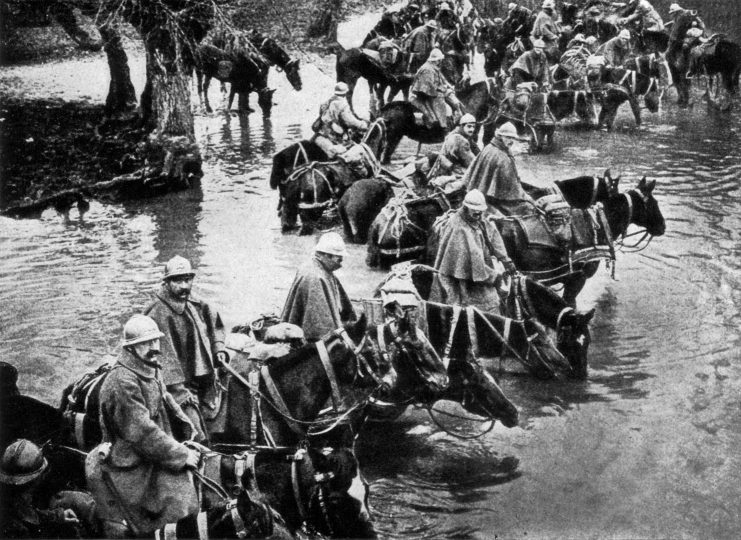
With France becoming a major battleground in a war which took 16 million lives, it would be four years before the Tour de France re-emerged. Alsace and Lorraine were now part of France again, a condition included in the Treaty of Versailles and celebrated by France. The 1919 Tour de France is an example of political symbolism in sports, with legs to Metz (in
Lorraine) and Strasbourg (in Alsace) included to mark union of France with its lost regions.
The Tour de France & World War II: The Holocaust & Blackmail
After the 1919 Tour de France, the competition continued up to and including the 1939 Tour de France, which began on the eve of World War II. Some notable absentees were Italy, Spain and Germany, who refused to take part amidst spiralling political tensions. In 1940, Germany occupied the Northern half of France, whilst most of the Southern half remained a “free zone”.
That same year, the owner of L’Auto, the newspaper which organised the Tour de France, died and ownership was passed to a consortium of Germans who published favourable comments towards the occupying Nazis.
German authorities were keen to continue the Tour de France during their occupation to show “normality” in occupied France, but for obvious reasons, in 1940 and 1941, their requests were denied by L’Auto. By the end of 1942, the vast majority of France would be occupied by the Nazis.
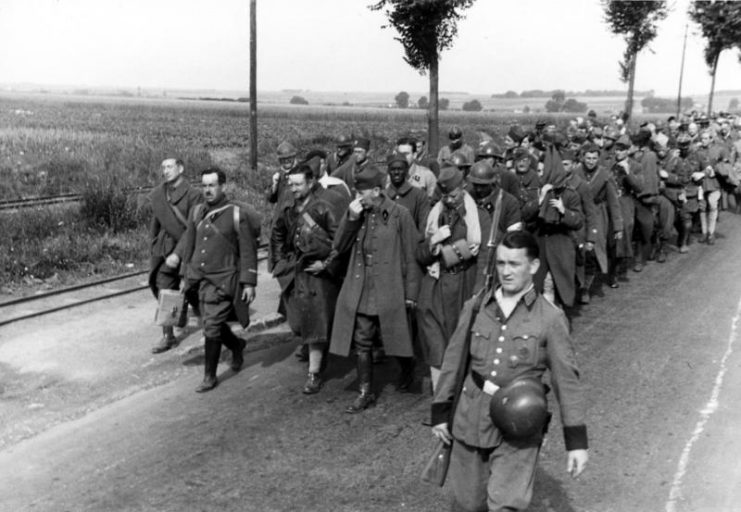
On the 16th and 17th of July 1942, 13,152 Jews, including 4,000 children, were arrested in Paris in a raid carried out by French police in collaboration with the Nazis. They were held at the Velodrome d’Hiver before being taken to Auschwitz.
The keys to the Velodrome were handed over by none other than Jacques Goddet, the chief reporter of L’Auto and future
director of the newspaper’s re-branded publication L’Equipe.
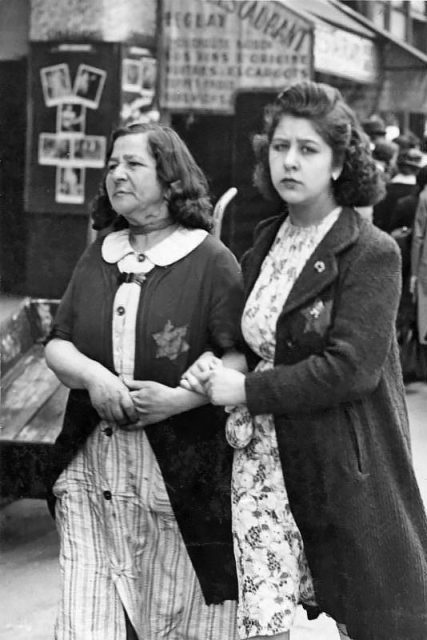
Two months later, a version of the Tour de France called the Circuit de France took place, organised by the obliging publication, La France Socialiste. There are reports of cyclists
being forced to take part in the race, with one cyclist Émile Idée said to have been left stunned after being visited by the Gestapo to ensure his participation in the race. The next Tour de France, the 34th edition, wouldn’t be held until five years later in 1947, two years after the end of the Second World War.
Whilst L’Auto was shut down when the new government of free France disbanded every single publication that had worked during the occupation in 1944, they were able to relaunch under the name of L’Equipe, France’s biggest sports publication to this day, who were allowed to organise the 1947 Tour de France.
Émile Besson, a sports journalist and member of the Resistance complained that, “It’s shocking that they were allowed to organise the Tour again after everything that went on”. L’Auto, and thus L’Equipe’s uncomfortable ties to the Nazis is part of the wider political question: Was the occupied French government a helpless puppet or a willing collaborator of the Nazis?
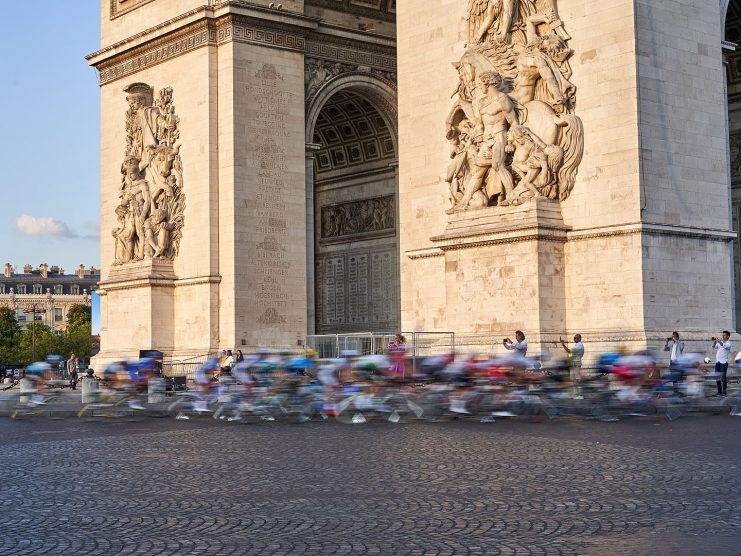
Modern Day: The Tour de France and Politics in Sports
In 2019, the Tour de France held its 106th race. The event is now organised by the Amaury Sport Organisation, who share owners with L’Equipe. With the iconic Tour de France a symbol of international unity, the origins of the competition may come as a surprise to many. However, sports always were and always will be inextricably linked to their political context.
Another Article From Us: Germany Still Pays UK & Belgian Pensions to Collaborators
Just a few weeks ago, a woman, nicknames Blue Girl, burnt herself to death after being arrested for attempting to attend a football match disguised as a man in Iran, where women are banned from entering sports stadiums.
